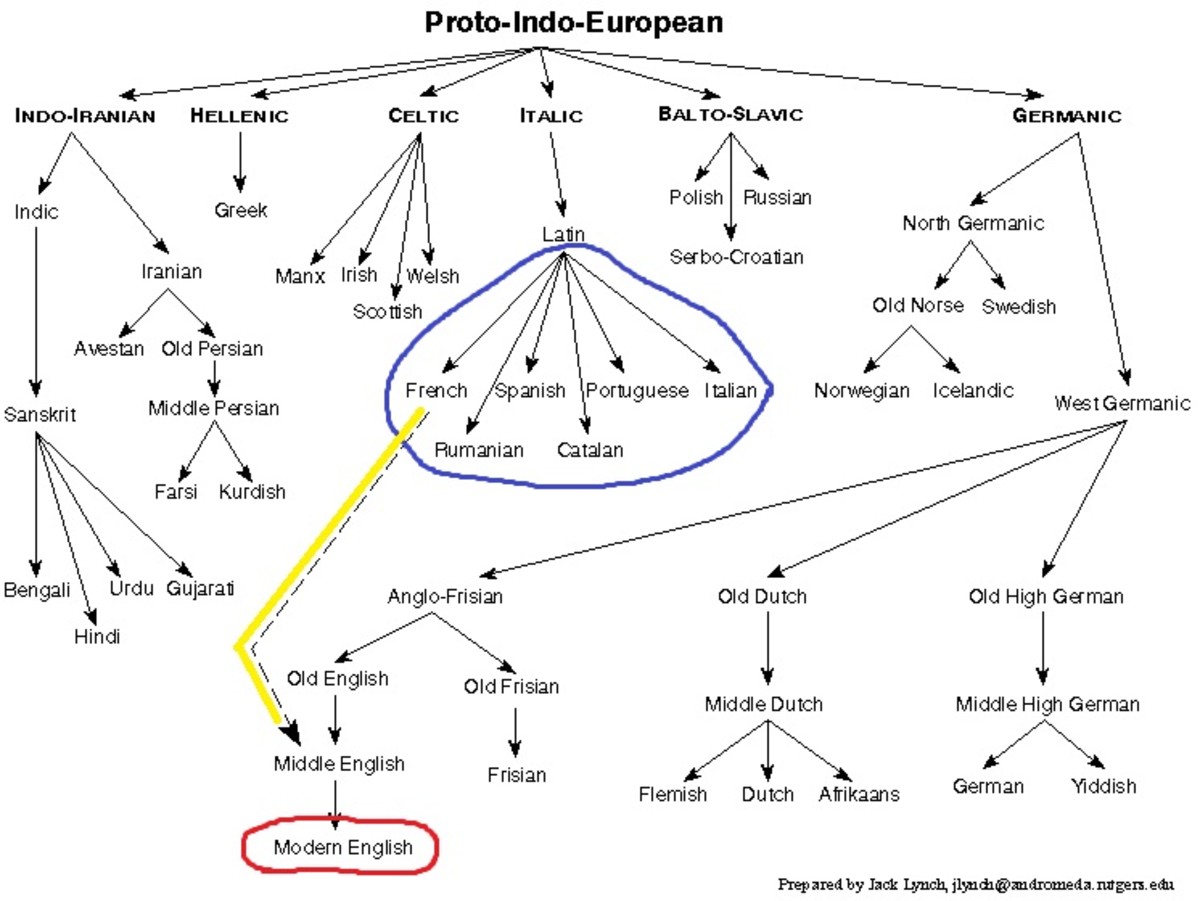Where New Words Come From
Introduction
Where do new words come from? How do we get new words?
While words come into being any time someone creates a set of sounds to refer to an object or concept, words are adopted into the community's lexicon due to several reasons. New words can come from the inventor of an object, are borrowed from languages that have a word for something and often come from the evolution of existing terms.
Named for the Inventor
When there is a new invention, it may be named by its inventor or the public. One of the earliest examples of this is the name of the classical text “The Odyssey” named for the central figure Odysseus.
The boldness of the ancient queen Boadicea led to the term bodacious while Marcus Licinius Crassus’ reputation for ostentatious shows of wealth led to the term “crass” meaning crude or rude display in what should be a formal affair.

New Discoveries
When a new field of science opens up, a new word for it may be pieced together from Greek or Latin. New technologies and physical phenomena are also named based upon Latin and Greek strictures. New animal species are usually named in accordance to Latin rules. Then there is the English equivalent of naming an invention after the last name of the inventor. There is one notable exception of the computing language Ada named after the first name of Ada Lovelace, a mathematician and programmer of the Babbage Analytical Engine.

Evolution
Language can change over time as the meaning of words evolves. New words appear when verbal shorthand methods such as portmanteau replace the longer compound words. New words can also occur when the acronym for an organization becomes its standard name.
Existing words take on new meanings to suit the times. For example, a 1940s dictionary uses the term computer to refer to what could be considered a calculator or accountant today. Words take on new meanings as their usage expands. The control point of a ship is the helm, but today when we say someone is at the helm, we simply mean they are in charge.
Immigration
When people move into a new area, they may learn the new language over a few years or over generations. It is common for first and second generation immigrants to use both languages in the home. In some cases, immigration brings new foods for which the immigrants’ name for the food becomes the standard for it. Tortillas were brought into the United States by Hispanics and retained their name when the food and term were adopted into American culture.
The French names for upper class foods remain in the English language a thousand years after the French Norman invasion. This is why we order filet mignon at a fancy restaurant instead of a fillet steak or mutton instead of “sheep” meat. In some cases, the names for common items move from the immigrant language to the mainstream culture. For example, when an American goes into a Mexican restaurant, they request carne asada, not skirt steak.
Place names are another example of this. While the Celtic language died out across the UK, many Celtic place names remain. The immigrants retained the old place names even centuries after remaining there.







